A Future of Protecting Lives from the Pandemic: The Role of JICA’s Initiative for Global Health and Medicine
2022.11.29
It has been two and a half years since the spread of COVID-19 began to threaten the health of the global population. To contain global pandemics and to prepare for new ones, it is essential to act domestically and internationally, particularly in developing countries with weak healthcare systems. JICA launched its Initiative for Global Health and Medicine in July 2020, with the aim of establishing resilient health systems all over the world that can help prevent the global spread of infectious diseases and provide diagnoses and treatment when pandemics do occur.
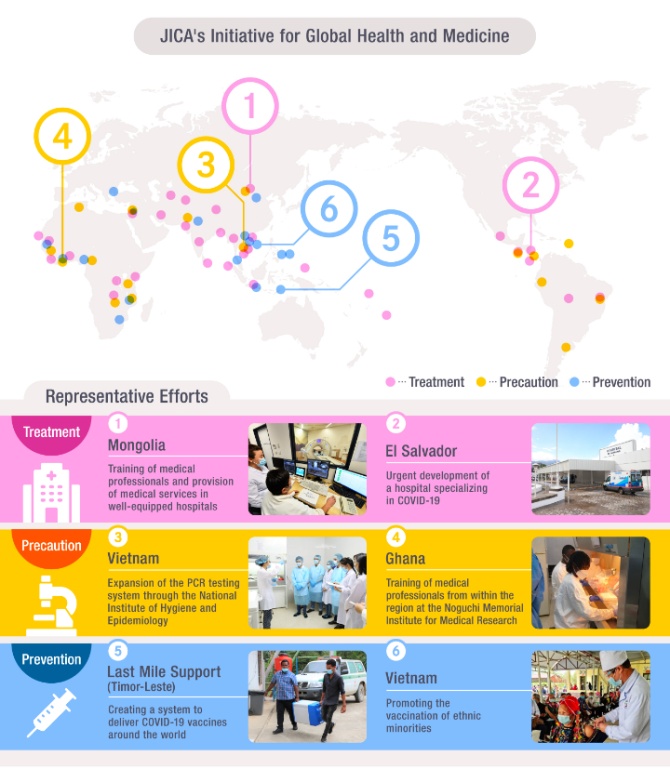
The COVID-19 global pandemic began in the first half of 2020. At the time, there was little knowledge concerning the virus and no vaccine or cure. There were fears of an explosive spread of infections, particularly in developing countries with weak healthcare systems.
JICA was quick to begin providing emergency support in these countries. Some of its activities have included strengthening infection-prevention and testing systems and establishing hospitals that could receive seriously ill patients. It launched the Initiative for Global Health and Medicine to protect people's health and build healthcare systems that would be more resilient against infectious diseases.
The initiative consists of three pillars.
1) Prevention: vaccine deployment, handwashing, and sanitation improvements
2) Precaution: the strengthening of testing and research systems.
3) Treatment: expanding treatment and diagnostic capabilities by developing hospitals and training medical personnel.
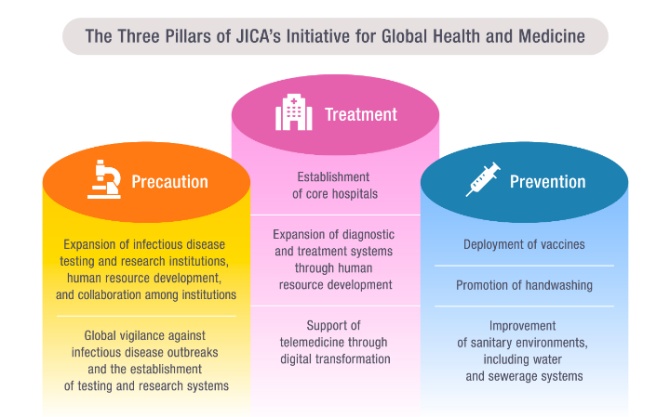
As the fight against the spread of COVID-19 has continued, JICA has also promoted initiatives tailored to the needs of each country. Hospitals have been developed to improve medical services for approximately 200 million people in 22 countries, and materials and equipment necessary to combat infectious diseases have been provided to 64 countries.
The existing treatment systems in developing countries were unable to cope with the increasing number of critically ill patients caused by the COVID-19 pandemic. There was a lack of expertise and technology as well as a shortage of facilities and equipment, such as isolation wards. JICA has connected local doctors and nurses with intensive care specialists in Japan via a communication system, and has provided remote training, advice, and guidance to more than 2,500 medical personnel in 11 countries.
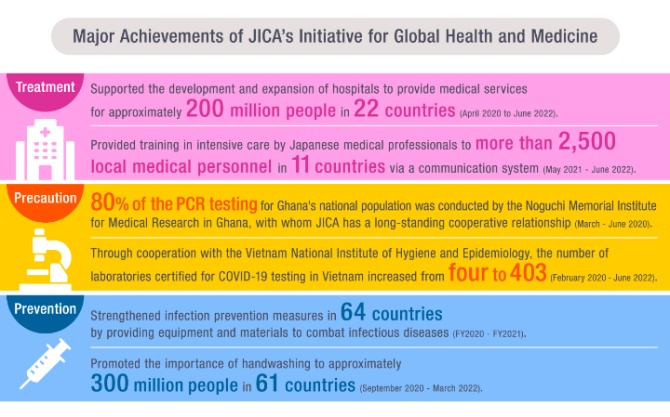
Ghana has benefited from Japan's long-standing cooperation in the health sector and this initiative to take prompt and sustained action against COVID-19 infections.
The Noguchi Memorial Institute for Medical Research, known as "Noguchi”, was established in 1979 with Japanese cooperation. It was responsible for 80 percent of the PCR testing in Ghana from March to June of 2020 when the pandemic started to spread globally. In 2018, the Institute also established the Advanced Research Center for Infectious Diseases, to work on measures for the early containment of infectious diseases. The research on these diseases, and the training of medical personnel over the years, enabled Noguchi to immediately begin developing a testing system and other measures in the chaotic period immediately following the outbreak of COVID-19.
Ms. Ozawa Maki, a former JICA Ghana Office staff member who currently is with JICA's Human Development Department, struggled early in the pandemic, along with other local officials. “I heard often from health officials that they didn't know what Ghana’s response to COVID-19 would have been like if it weren't for the Advanced Research Center for Infectious Diseases,” she says. “Our daily preparedness for health crises, such as the spread of life-threatening infectious diseases, helped us respond to this emergency.”
Noguchi has been improving the PCR testing system in Ghana, which now has more than 20 testing facilities. It is also supporting the training of laboratory technicians in neighboring countries in West Africa, so the know-how developed at Noguchi is helping create a regional preparedness system for health crises.
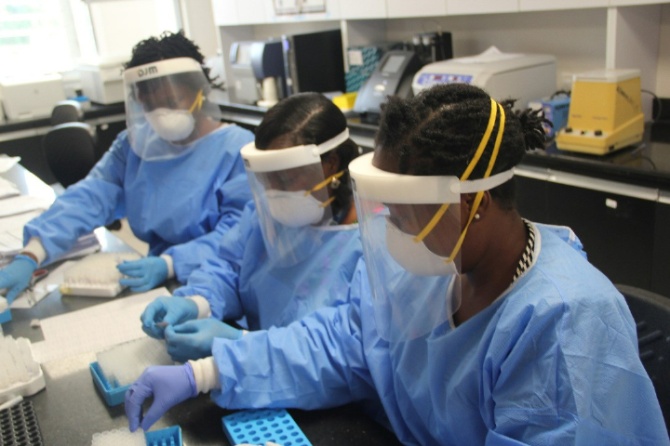
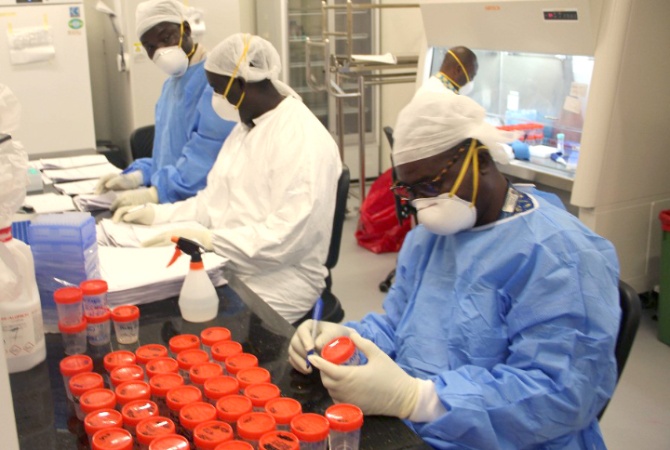
Local staff members prepare PCR tests at the Noguchi Memorial Institute's Advanced Research Center for Infectious Diseases (top and bottom photos).
In the fight against COVID-19 from 2020 to 2021, Japan ranked second only to Germany in the amount of support provided to developing countries by OECD member countries. JICA has supported measures taken by developing countries under the three pillars of its Initiative for Global Health and Medicine: treatment, precaution, and prevention. This included emergency assistance immediately after the pandemic’s outbreak.
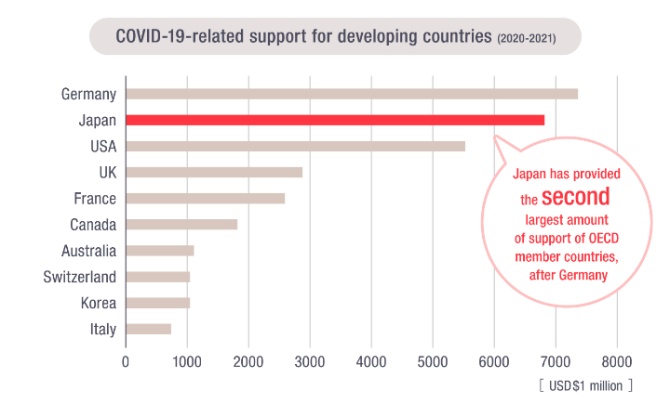
Amount of support related to COVID-19 (actual support for information propagation and communication, education and awareness, prevention and testing, treatment and care-system development, and vaccine deployment).
Sources:https://www.oecd.org/dac/financing-sustainable-development/development-finance-standards/ODA-2021-summary.pdf
Dr. Sugishita Tomohiko is a visiting professor at Tokyo Women's Medical University. As a JICA international cooperation specialist, he has served as a senior advisor on global health in more than 30 countries. He has long been involved in cooperating with developing countries, providing technical support for JICA projects in the field of health systems and disseminating good field practices both domestically and globally.
“JICA has provided a wide range of support during the COVID-19 pandemic,” Dr. Tomohiko says. “This has included emergency support such as the provision of necessary equipment and materials immediately after the outbreak, as well as remote support for advanced medical care and the training of medical professionals. It has also included educational activities on prevention in the community such as handwashing. JICA's Initiative for Global Health and Medicine plays a significant role in providing tailor-made support to each country based on day-to-day local information.”
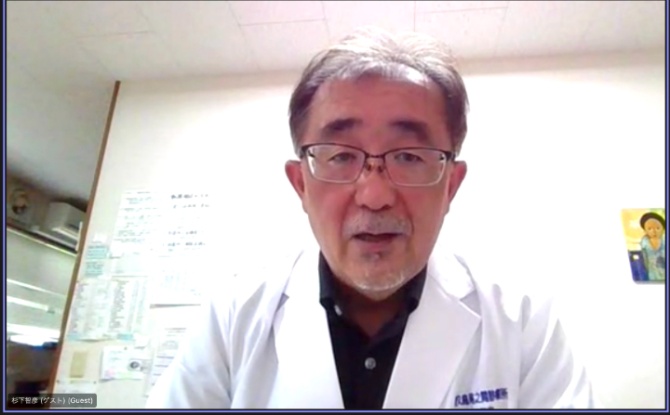
Dr. Sugishita Tomohiko, visiting professor at Tokyo Women’s Medical University.
Dr. Sugishita spoke about the post-COVID-19 world. “A Ugandan health official told me that the biggest challenge of the COVID-19 outbreak was the lack of funding and human resources,” he said. “But this was an issue even before the pandemic. COVID-19 only highlighted the vulnerability of the underdeveloped health systems of developing countries. In order to cope with public health emergencies, we need to strengthen basic health systems during normal times.”
Comprehensive support is needed not only to provide adequate healthcare services, but to ensure access to safe water and improve living conditions in terms of sanitation and hygiene. Dr. Sugishita points out that support aimed at building on essential conditions and standards is far more effective than support that responds to a pandemic.
There is now active discussion on establishing global health systems that can cooperate in preparing for and responding to future global pandemics. JICA will continue to promote its Initiative for Global Health and Medicine in cooperation with key stakeholders in Japan and abroad to create a resilient society that can protect the health of the world’s population.
scroll